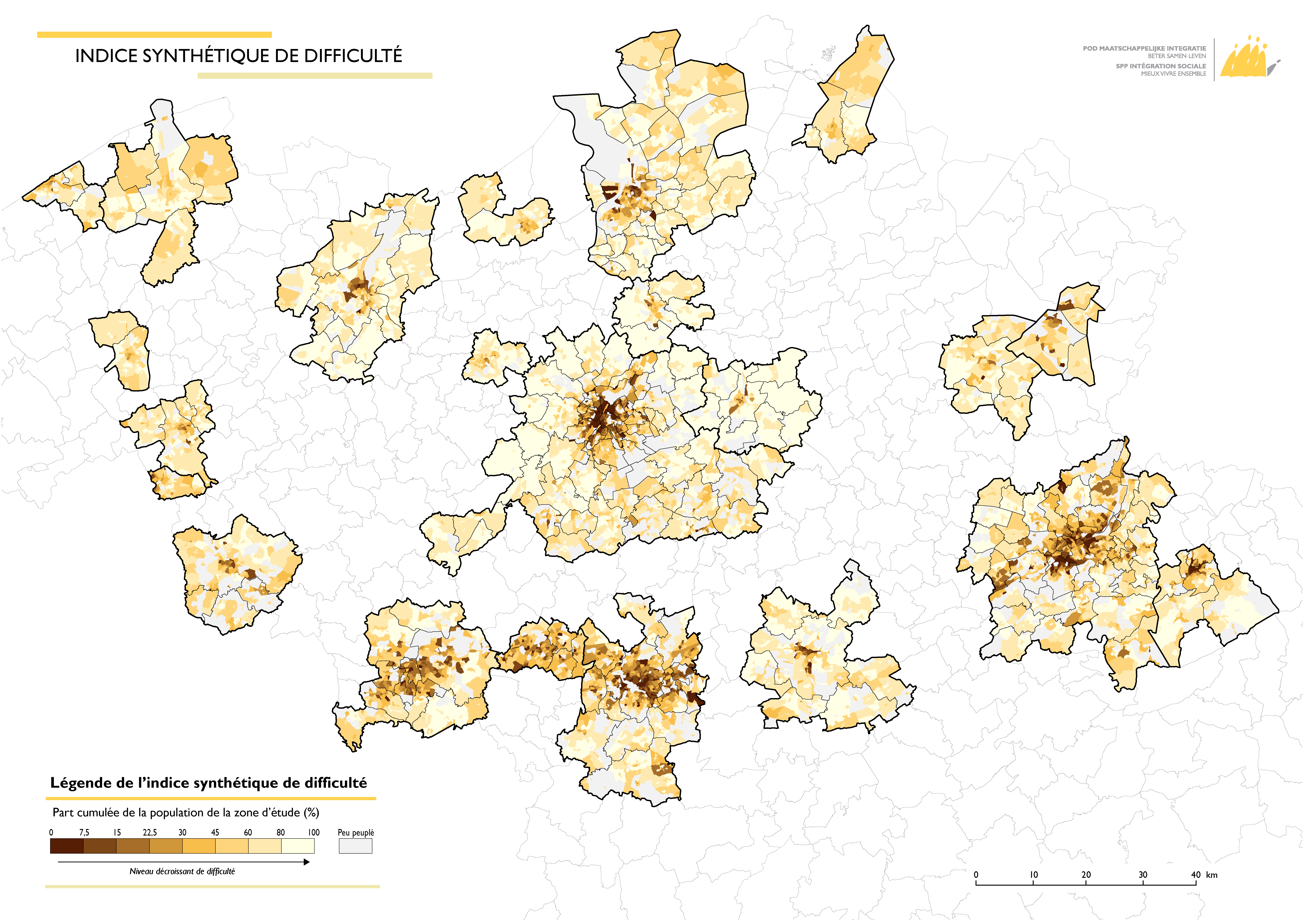
The project
Belgian cities are experiencing increasing social disparities between the different neighbourhoods within their boundaries. This is often the result of a combination of social difficulties affecting some areas more than others. In these neighborhoods, low average incomes, low school enrollment, high unemployment, poor quality of life and inaccessible public services all affect the future prospects of the population. This ‘Dynamic Analysis of Distressed Neighborhoods in Belgian Urban Regions’ provides a fresh look at Belgium’s disadvantaged neighborhoods. It focuses on the most deprived areas, which account for 30% of the population, i.e. approximately two million people. The study was carried out under the direction of the Université libre de Bruxelles (ULB), at the request of the SPP Social Integration and in collaboration with the Katholieke Universiteit van Leuven (KUL).
My achievments
In this project, I performed the whole quantitative analysis including clustering, PCA and data preparation & curation. Also, I was in charge of setting up the final report for the federal autorities.
Skills learned and/or deployed:
- Data science and quantitative analysis
- SAS, QGIS, R
- Automation (scripting) and reproducibility of research
- Thematic cartography through published atlas
- Reporting
Webpage on federal SPP/POD: Click here.
Link to the published repport: Click here.